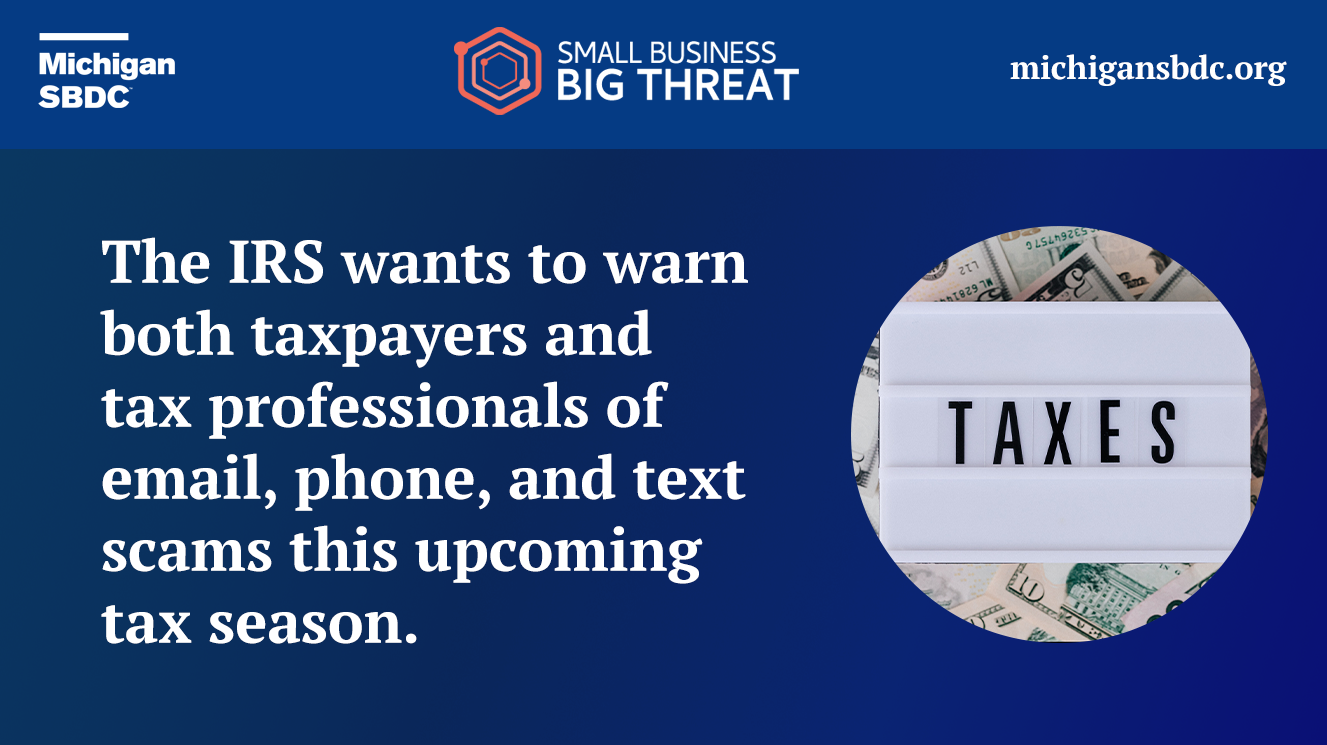 Merry tax season to all and to all a good wait, that doesn’t sound right. Merry tax season? Oh wait, last week was National Tax Security Awareness Week and on the final day the IRS wanted to warn both taxpayers and tax professionals of email, phone, and text scams this upcoming tax season. As you all know, tax season is really just right around the corner. So although we are right in the middle of the holiday season, it is time to get prepared and stop those tax scammers in their sleigh tracks before they even get started!
Merry tax season to all and to all a good wait, that doesn’t sound right. Merry tax season? Oh wait, last week was National Tax Security Awareness Week and on the final day the IRS wanted to warn both taxpayers and tax professionals of email, phone, and text scams this upcoming tax season. As you all know, tax season is really just right around the corner. So although we are right in the middle of the holiday season, it is time to get prepared and stop those tax scammers in their sleigh tracks before they even get started!
Email, phone, and text
Oh my! As a lot of you excellent Security Byte readers know, email, phone, and text are all used in social engineering attacks. These are called phishing, vishing, and SMSishing, respectively. They all prey on convincing you to divulge confidential information that you wouldn’t usually tell someone. Sometimes the cybercriminal will apply pressure and threaten you in some way for the information, while other times they may try to trick you into thinking they are a coworker or a business partner.
There are different methods and ways in which the attacker will try to get the information from you, but every method tries to trick you into doing it. So be cautious as every phishing email, vishing call, or SMSishing text is different.
IRS says this
The IRS raises some great points in there tax season scam warning
- Taxpayers receiving a tax transcript in the mail from the IRS that was not ordered.
- Taxpayers receiving an unrequested Employer Identification Number.
- Taxpayers receiving W-2’s from an unknown employer.
- Taxpayers unexpectedly getting a notice or an email from a tax preparation company that is:
- Confirming access to an existing online account.
- Disabling an existing online account.
- Confirming a new online account.
- Getting a letter from the IRS during a year that the taxpayer didn’t earn income or a tax return hadn’t been filed. In this situation, it’s possible an identity thief has submitted a tax return in the honest taxpayer’s name. In this situation, where the taxpayer didn’t earn money or file a return, the warning sign is a letter showing:
- Additional tax is owed.
- A refund was offset because of a balance due.
- Collection actions have been taken.
You may be seeing a trend here, I know I certainly do. The trend I see is, receiving something that is unexpected, something that seems out of place, or something that just makes no sense. All of these are red flags to look for or to listen to when receiving an email, phone call, or text message. It is always important to ask yourself a few quick questions:
- Why am I getting this?
- Who is sending this?
- Did I ask for this?
- Was I expecting this?
If you can’t answer these questions, be skeptical and hesitant to interact until you are able to answer these questions. So have a merry Tax Season, errr, holiday season!
To learn more about protecting your small business from tax scams and to learn more about cybersecurity threats, trends, and topics with a focus on small business, check out Small Business, Big Threat!